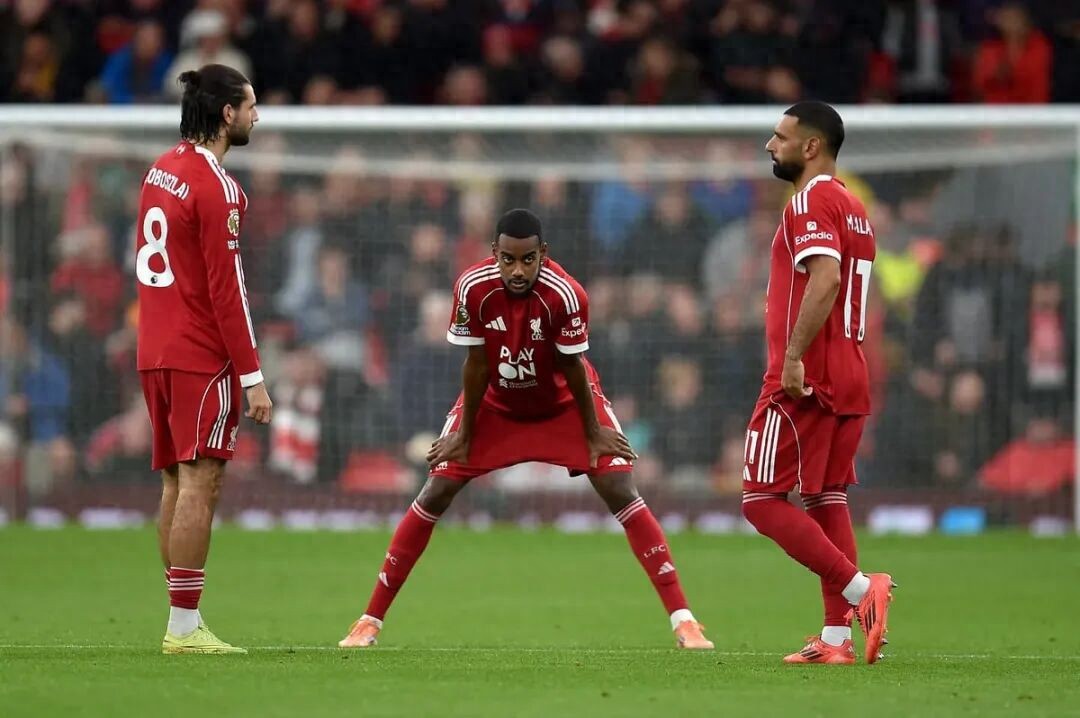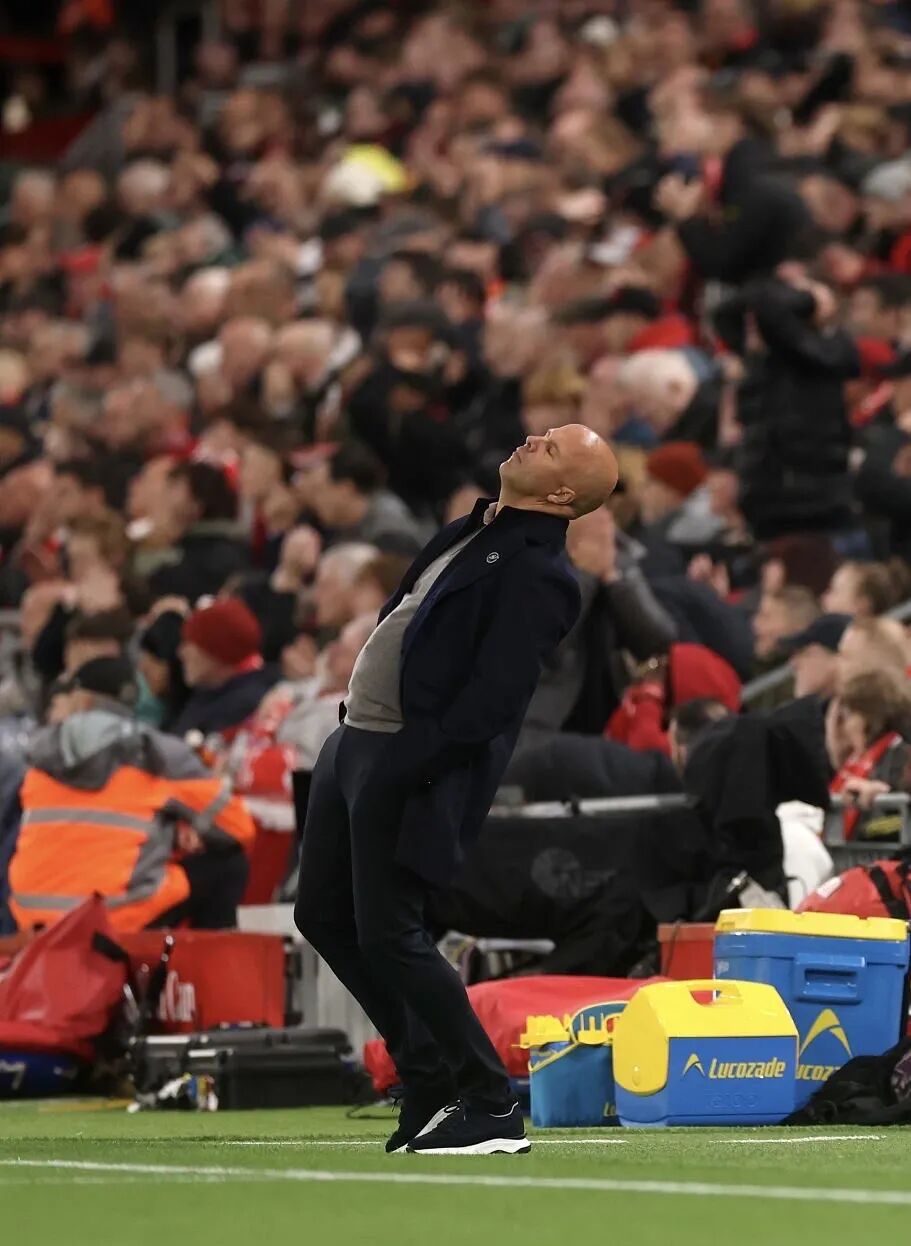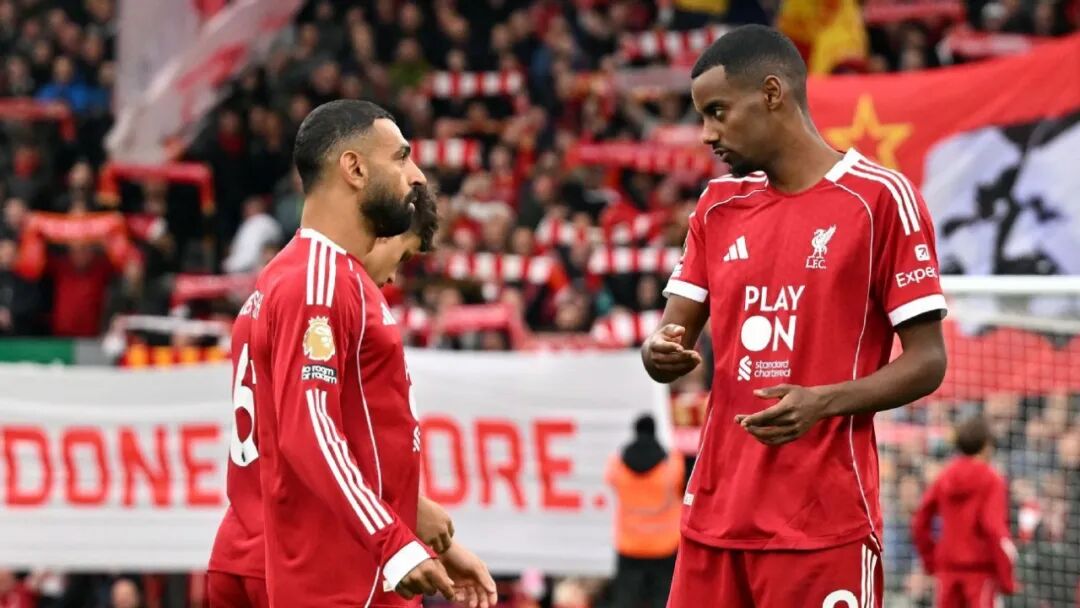After a record-breaking summer window, why does Liverpool seem to have “lost their ability to play”?

Written by Han Bing Losing 1-2 at home to Manchester United, Liverpool has now experienced four straight losses in all competitions this season. For a Liverpool side that made record signings such as Wirtz, Isak, and Ekittik during the summer, these results are obviously intolerable. The last time Liverpool was this down was 11 years ago after releasing Suarez, in a similarly disastrous transfer window filled with failed acquisitions. While criticism has mainly targeted the noticeably declining form of Salah and Van Dijk, the real problem lies with manager Klopp.
Perhaps Klopp should focus more on how to integrate the new squad into a more efficient unit. To fundamentally solve Liverpool’s dilemma of struggling to score and defend, he must abandon the traditional Dutch coaching stubbornness. This confidence in his own system often turns into rigidity when the team hits a bottleneck, eventually leading the team into an irreversible crisis. Liverpool’s four consecutive defeats clearly show that despite acquiring expensive attackers, they have failed to develop attacking power that matches the players’ value.
In the match against Manchester United, Gakpo hit the post three times, Isak squandered a valuable chance, and Salah went seven consecutive Premier League games without scoring a non-penalty goal for the first time. Yet, Liverpool dominated possession at 64%, took 19 shots (compared to United’s 12), and had 52 touches inside the opponent’s box (versus United’s 16). This proves that Liverpool’s possession dominance has not translated into balance between offense and defense. The weak attack naturally puts more pressure on the defense, and Van Dijk-led backline conceded two or more goals in seven of the first 12 matches. Last season, Liverpool conceded only 3 goals in the first 8 Premier League rounds; this season, it’s already 11.

Liverpool legend Carragher believes Klopp’s persistence is turning into stubbornness. The fact that out-of-form Salah and Isak remain regular starters is proof of this. Klopp has lost the objective standard of “form-based selection.” To accommodate the record signing Isak, Ekittik is relegated to the bench, while Chiesa, who assisted Gakpo, has shown he deserves more playing time. How Klopp makes targeted changes in the future could be a decisive challenge for him.
The triple record signing Isak remains Liverpool’s glaring “pain point.” Before the match, Klopp claimed Isak was “ready,” but the results were disappointing. Over the past six weeks, Klopp has received daily reports from performance director Peeters and medical chief Bauer, who have created a special rehabilitation plan for Isak. However, the public has clearly underestimated the prolonged transfer saga, solitary training, and psychological pressure Isak faced joining Liverpool, along with the significant impact this pressure has had on his rhythm, technical instincts, and confidence. Klopp does not acknowledge this and insists Isak’s poor form is due to physical condition.
During the away game at Crystal Palace, Liverpool’s AI tools alerted the coach that Isak might be injured, so he was substituted when the team was trailing 0-1. This customized AI tool, designed by STATSport, includes a key metric called step balance; literally and figuratively, Isak’s steps are unbalanced, and he has yet to find a way to synchronize with Liverpool’s rhythm. Anfield fans have no song for Isak because they don’t know what to sing. In contrast, Isak’s replacement at Newcastle, Woodman, who also joined abruptly, has scored 5 goals in 6 starts.

But Liverpool’s problem is not just Isak; it is a comprehensive loss of direction. Salah’s inefficiency in front of goal is the strongest evidence of his decline, caused by his inability to adapt to changes in strike partners and the lack of any chemistry with Isak or Ekittik. Klopp is clearly responsible for this, as Liverpool’s main issues remain poor player selection, tactical rigidity, and stubborn post-match defense of the system.
Klopp chose to vacation in Dubai during the international break, maintaining his routine of reading the Dutch newspaper De Telegraaf in the morning and listening to talkSPORT while driving to work, seemingly unaffected by negative public opinion. His way of handling the crisis is to quote cycling legend Armstrong’s strategy during poor form: keep smiling in front of cameras, then push hard up the Alps. Klopp indeed kept smiling, but a smile alone cannot solve Liverpool’s crisis. In post-match reviews, he edited out negative clips to protect team morale and emphasized bad luck rather than tactical issues after the Manchester United game.
However, habitual post-match reviews are clearly no longer enough. Klopp must make significant systemic changes in Frankfurt to prevent Liverpool from suffering their second five-match losing streak across all competitions since 1953. Decisions about Salah and Isak must be made promptly and clearly. Otherwise, Liverpool’s confusion will persist for a long time to come.



Wonderfulshortvideo
lamine yamal goal today lamine yamal assist today yamal barcelona barcelona 6-1


fermin lopez hattrick hat trick fermin lopez goal barcelona 6-1


BTA is at it again for Coventry ⚽️


HAALAND goal today haaland record haaland champions league man city 2-0 villareal


Tell us in the comments… No swearing though 🤣


So cold with it 😅








 Links
Links
 Contact
Contact
 App
App


